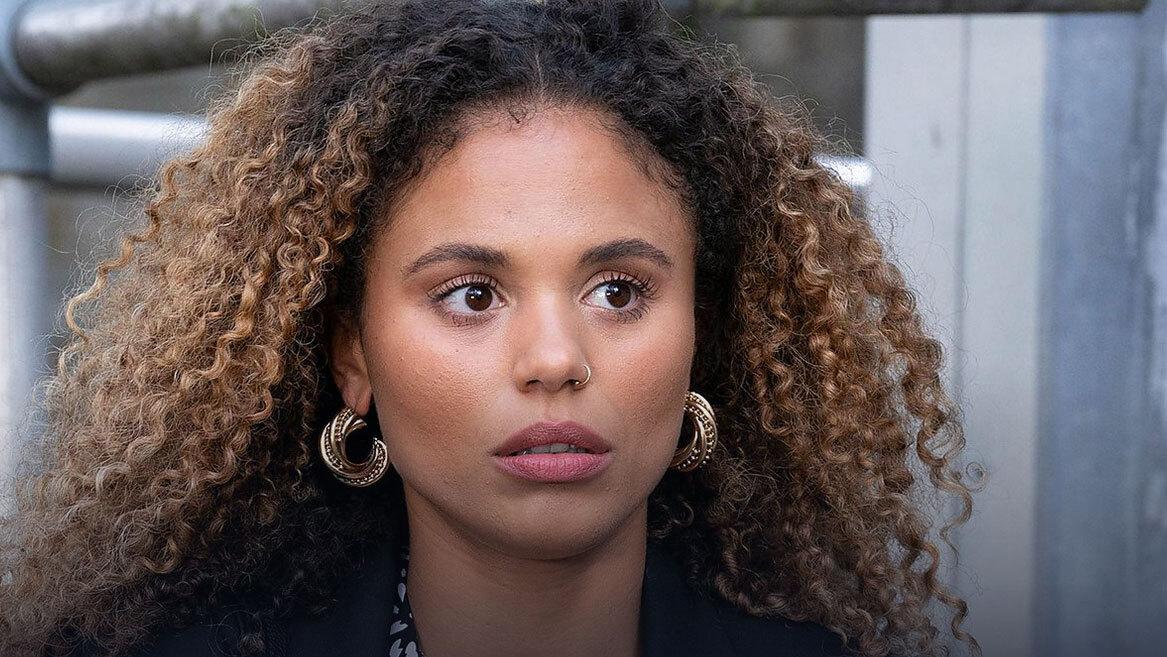The popular British soap, “EastEnders,” aired an episode that touches on increasing domestic violence cases during the coronavirus lockdown in the UK.
In the series, a young woman has been preparing to leave her abusive husband, and the abuse escalates while she is trapped with him during lockdown. She is tragically killed by her husband in a recent episode.
The show offered ample warning that the main character would be murdered this season to call attention to the grim reality of intimate partner violence under lockdown.
Related: Latin American women are disappearing and dying under lockdown
An investigation by Panorama and Women’s Aid last month found that the coronavirus crisis has dramatically increased domestic violence against women in the UK, with two-thirds of women in abusive relationships having suffered increased violence from their partners during the pandemic.
Related: In Turkey, a conservative push to remove domestic violence protections
The soap opera worked closely on the screenplay with two charities, Women’s Aid and Refuge, which consulted closely with the show on the scripts. Women’s Aid has been studying how lockdown is impacting people with abusive partners.
The World’s host Marco Werman speaks with Sophie Francis-Cansfield, senior campaigns and policy officer at Women’s Aid in the UK, about increased intimate partner violence during the coronavirus pandemic and what it has meant to produce a potentially life-saving episode of “EastEnders.”
Marco Werman: Your organization recently led an investigation into how lockdown was impacting people with abusive partners. Sophie. What were the findings?
Sophie Francis-Cansfield: Unfortunately, the impact on women and children really showed that domestic abuse got worse during the pandemic and lockdown. So, two-thirds of survivors who identify as currently experiencing abuse told us that their abuser had started using lockdown restrictions or using the COVID-19 virus as part of the abuse. So, it became a tool for abusers to carry out their abuse on women. The research highlighted that women reported that the abuse they experienced got worse during the pandemic and obviously during the lockdown. This was particularly true for women who were living with their abuser during the time. And unfortunately, all of this lockdown period meant that their access to escape and support networks were extremely limited. It made it much more difficult for women to seek support or to leave their abuser. And over three-quarters of survivors living with an abuser said they felt they could not leave or couldn’t get away because of the pandemic.
Related: How groups are helping domestic violence survivors during the lockdown
Let’s talk about the “EastEnders” plotline. How did Women’s Aid work with the show to make sure these kinds of relationships were being portrayed accurately?
So, Women’s Aid had been working on the BBC “EastEnders” storyline for the past two years now. At Women’s Aid, we know the reality of domestic abuse is that not everyone survives. But unfortunately, this isn’t a well-known fact. But, for those of us campaigning to end domestic abuse, this storyline and “EastEnders” provided us with a platform to let viewers know. So, at the moment, three women will be killed in the UK every fortnight. And that is a statistic that was even higher during the [peak] lockdown, when we saw 16 women murdered. So, it’s really benefited as an informative platform. It’s been incredibly eye-opening for so many “EastEnders” viewers to learn that fact.
What kinds of resources are available for people facing these abusive situations?
During the initial lockdown, it was difficult for women and children to escape and access support that organizations like Women’s Aid have been providing a number of direct services to women. We firstly have a live-chat helpline and this is a safer way to access some support, particularly if an abuser might also be on the property. So, it wouldn’t be safe to make a telephone call. And this can just be all done over chat. But we also have our survivor’s forum, which is an online resource for survivors and can be accessed 24/7. But it is a real place where survivors can support each other and share their experiences, which can be really empowering and beneficial.
Why is it important for stories like this to be seen by a wide audience? Have you been getting feedback about this collaboration with “EastEnders”?
We’ve heard from women who said that thanks to the storyline, they’ve now been able to recognize what they were experiencing after being in a relationship with their abusive partner — some for almost five decades. They are now seeking professional help. And I think it’s thanks to those responsibly executed TV dramas that we’re able to raise that awareness alongside giving information about how survivors can get life-saving help and support that has the ability to really change lives.
This interview has been edited and condensed for clarity.
Our coverage reaches millions each week, but only a small fraction of listeners contribute to sustain our program. We still need 224 more people to donate $100 or $10/monthly to unlock our $67,000 match. Will you help us get there today?
